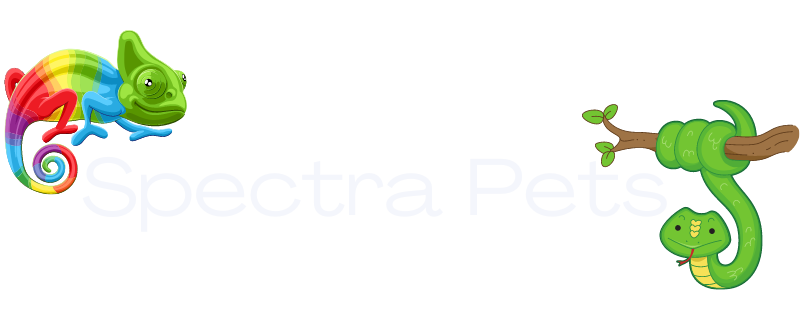Pets such as cats and dogs are a treat to have since they are highly intelligent and you can train them to do a lot of tasks. But don’t be fooled by these two popular pets, as not all pets are as intelligent as them. This is especially applicable to aquatic pets, like fish, etc. But what about axolotls? Are axolotls smart?
Axolotls are simple creatures that are not considered to be very smart due to their simple brain structure and nervous system. But even then, they show signs that can be called smartness when compared to other aquatic pets. They can be trained to do simple tricks like reacting to stimuli to receive food and navigating mazes.
Recent research indicates that axolotls possess a range of cognitive abilities, from learning to problem-solving, which are crucial for their survival and adaptation in varied environments. They may not showcase intelligence in the conventional sense, like humans or dolphins, but they reveal intricate cognitive behaviors worth studying.
What Defines Intelligence in Axolotls?
To understand axolotl intelligence, we first need to comprehend what “intelligence” signifies in the realm of animal cognition. Animal intelligence is a multi-faceted concept, and it may include aspects like learning capacity, memory, problem-solving, and adaptability. These factors help us gauge the cognitive complexity of axolotls and distinguish between instinctual responses and intelligent behaviors.
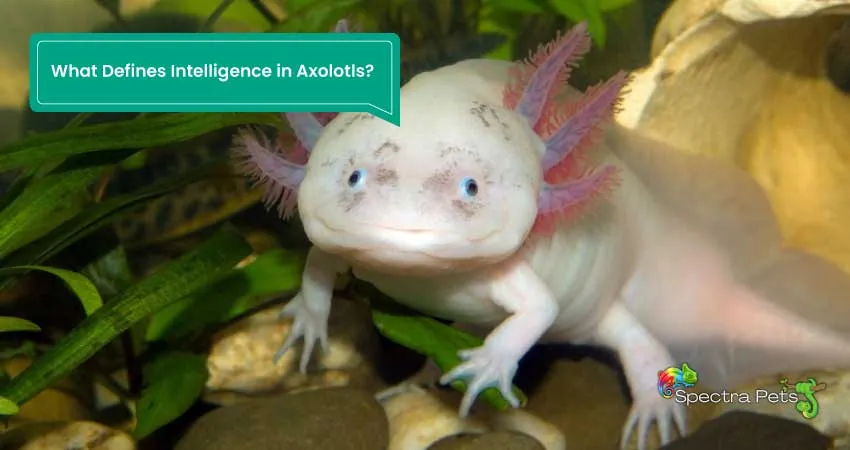
Animal intelligence is distinct from human intelligence, though some overlapping components exist. It’s crucial to bear in mind that animal intelligence does not merely imitate human intelligence but presents its own set of unique cognitive skills honed by evolution for survival.
Axolotls showcase several markers that suggest cognitive capacity. These include learning through conditioning, problem-solving, and display of certain behaviors that indicate memory retention.
Can axolotls be considered smart?
The enjoyment when you train your pet to do a trick and it does it perfectly is incomparable to anything. This is one of the reasons people like to have intelligent pets like dogs, cats, and some birds.
On the other hand, some people don’t want to go through the procedure of training their pets and want animals that largely keep to themselves and have a lower IQ. Most aquatic pets fall into this category.
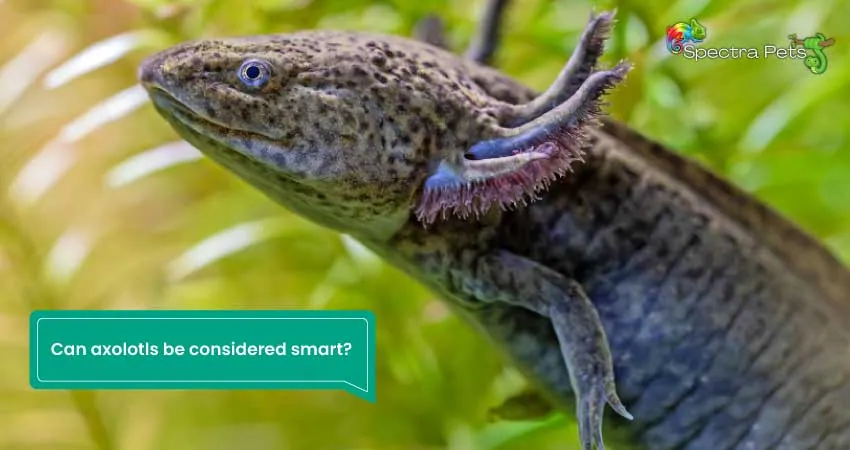
But since axolotls are a bit different than most aquatic animals, and they are quite new to being a more common pet, people often wonder whether axolotls can be considered smart.
As far as smartness goes, axolotls can’t hold a candle to the aforementioned animals. This is because compared to other animals we have mentioned above, axolotls have a simpler nervous system and their cognitive abilities are also more limited.
But that doesn’t necessarily mean axolotls are completely dumb. They have been observed to demonstrate a few behaviors that can show you that they can problem-solve and learn.
Here are a few signs that axolotls are smarter than you might think.
1. Memory and learning
Axolotls have shown a greater level of memory as well as learning than most other aquatic pets. You, as an owner, can train your axolotl to associate specific stimuli with either rewards or punishment. This will enable them to find food based on stimuli such as vibrations or sound, not sight or smell. So not only does it show a certain level of memory but also learning.
2. Solving problems
While axolotls can’t solve complex problems like parrots, they can demonstrate a small level of problem-solving skills. These animals can navigate mazes while also remembering and recognizing their surroundings. This helps them to find food as well as suitable living conditions easily.
3. Sensory Perception
Axolotls own highly efficient senses that allow them to navigate through the murky waters they live in. Their sense of smell is especially heightened, as they use it to find food. They can pick up chemical cues through their well-developed olfactory system. This highly sensitive olfactory system ensures their survival even in the most difficult living conditions.
Can Axolotls Recognize Humans or Their Caretakers?
One intriguing aspect of axolotl cognition is their potential ability to recognize their caretakers. While this topic remains open for scientific exploration, there are numerous anecdotes and observational data that suggest axolotls can indeed form a recognition pattern related to their human caretakers.
Many axolotl owners report that their pets seem to recognize them, often showing excitement or anticipation when they approach the tank, especially at feeding times. Although this is mostly anecdotal, it provides an interesting insight into their potential recognition skills.
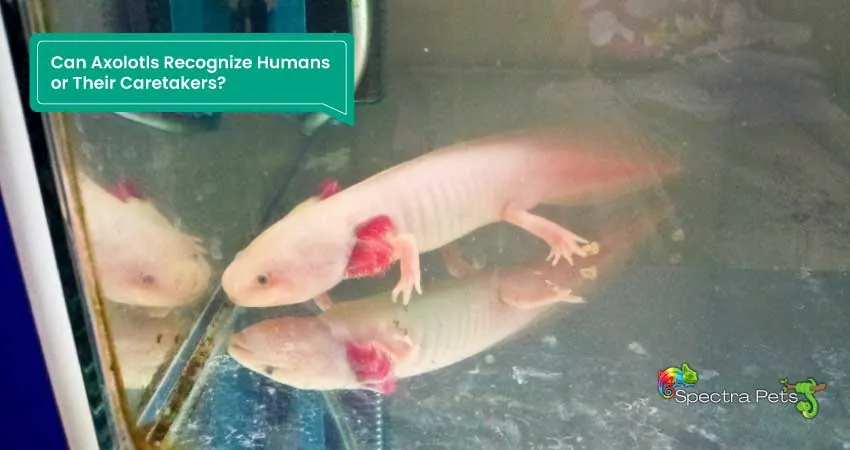
Scientific research into axolotl-human recognition is still in its early stages. However, a recent study published in Behavioural Processes journal found evidence suggesting axolotls can differentiate between different human faces, showing a potential for individual recognition.
Various factors can influence axolotls’ ability to recognize their caretakers, such as feeding routines, interaction frequency, and the individual temperament of the axolotl. Further research is needed to substantiate these observations and decipher the cognitive processes behind these behaviors.
How do Axolotls Communicate?
Communication is another facet of cognition that reflects an organism’s intelligence. Axolotls are not social creatures in the conventional sense, but they do have ways to communicate, particularly when it comes to territory and mating.
Axolotls utilize physical movements, posturing, and chemical cues to communicate with each other. For instance, during the breeding season, males perform a unique dance to attract females, signaling readiness to mate.
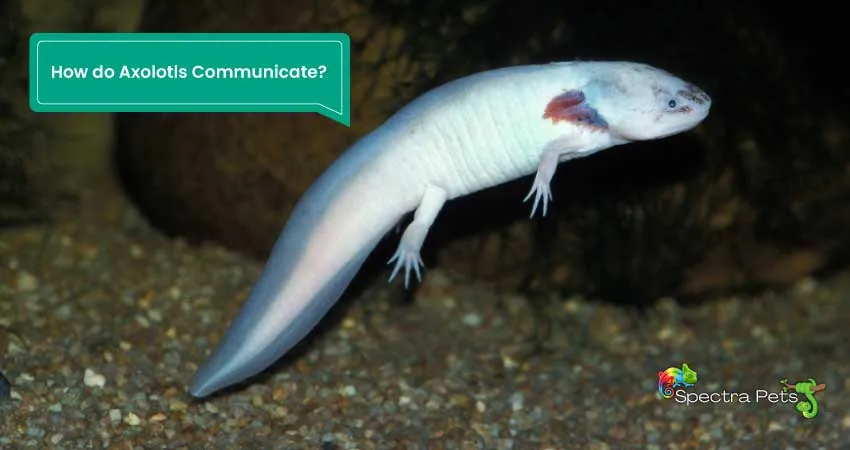
Understanding axolotl communication patterns can offer insights into their cognitive capabilities. Aggressive posturing, such as standing tall and fanning gills, typically signals a warning to other axolotls to stay away from a claimed territory.
While axolotls are generally solitary, they exhibit sophisticated communication during interaction instances. This complexity suggests a certain level of intelligence that warrants further exploration.
Can Axolotl Intelligence be Enhanced?
The idea of enhancing axolotl intelligence is intriguing, albeit complex. Like any other creature, axolotls’ cognitive abilities are influenced by a blend of genetic and environmental factors.
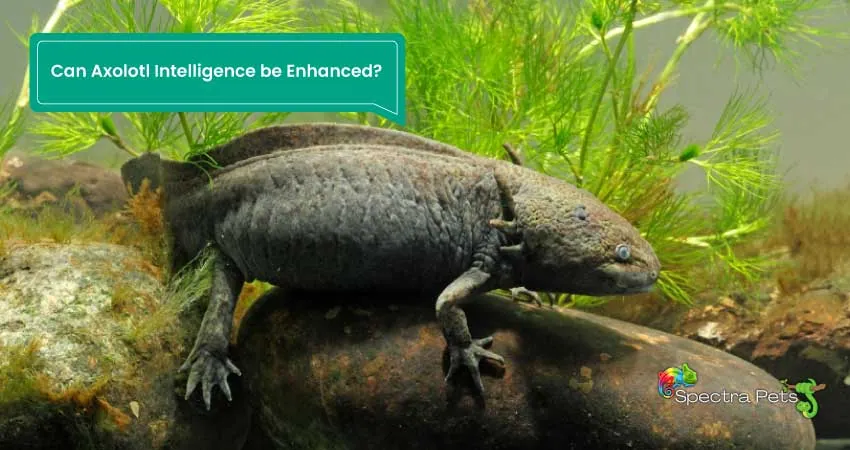
Stimulating Axolotl Cognitive Development
Providing an enriched environment can stimulate axolotls’ cognitive development. This could include introducing different elements to their habitat, varying their diet, or practicing interactive feeding methods. However, the actual effect of these methods on enhancing axolotl intelligence is still under investigation.
Challenges in Enhancing Axolotl Intelligence
Enhancing axolotl intelligence presents challenges, primarily because our understanding of axolotl cognition is still in its nascent stages. Moreover, any attempts to alter their cognitive skills must ensure the well-being of these creatures, maintaining a balance between stimulation and stress.
Potential Benefits of Boosting Axolotl Intelligence
Understanding and potentially boosting axolotl intelligence could have several benefits. It could improve their quality of life in captivity, contribute to conservation efforts, and provide valuable insights into vertebrate cognitive evolution.
Final Words
Axolotls, which have become more popular as pets due to the popularity of Minecraft, are a fascinating and attractive choice for exotic pets. While their intelligence is not as high as that of some mammals and birds, they are still intelligent creatures that can be trained. Whether or not you choose to train your axolotl is up to you, but they are definitely worth considering as a pet.
